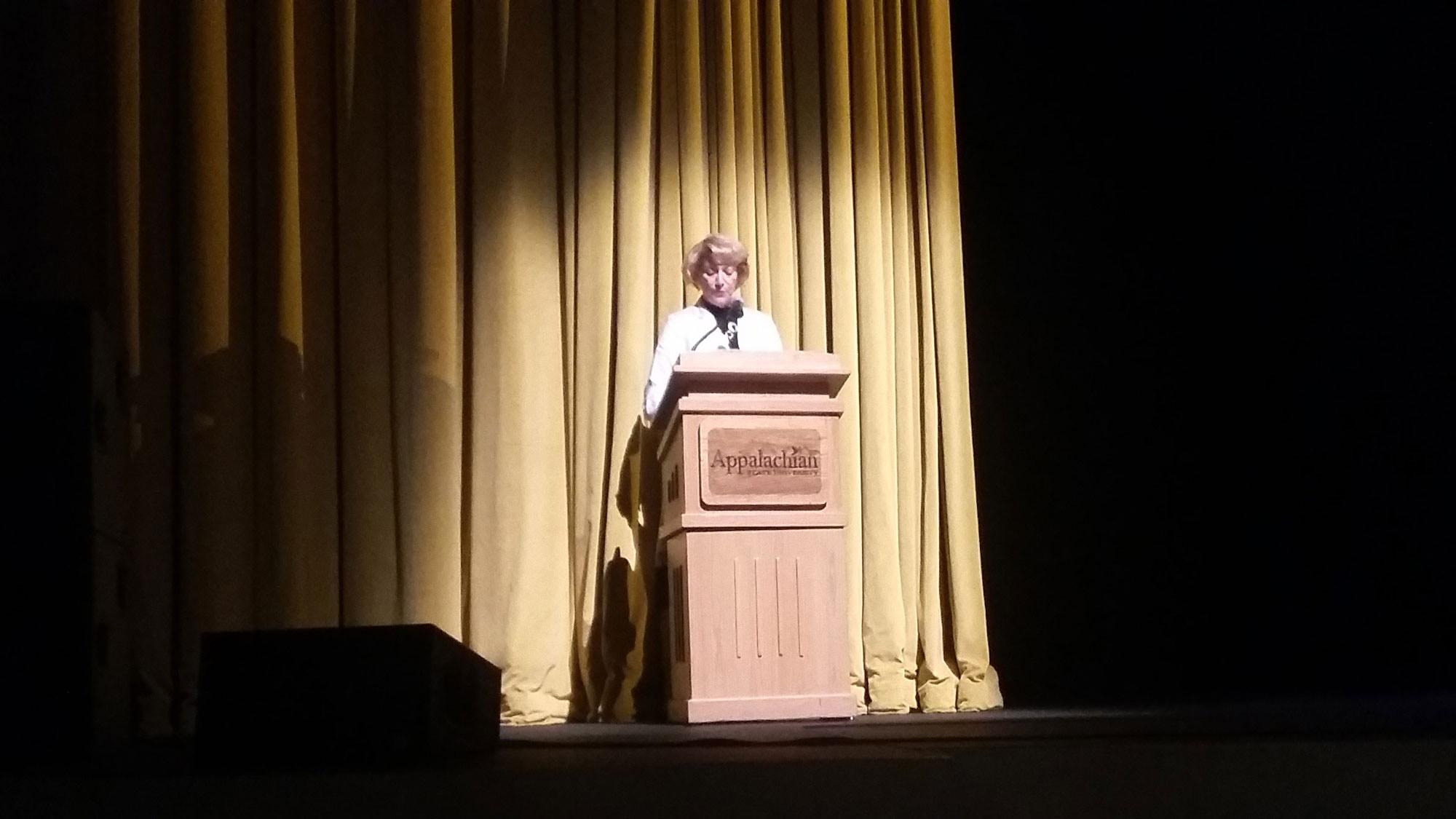Chancellor Everts reflected on the achievements of her first year and progress to be made as other speakers raised matters of concern at the general faculty and staff meeting Friday.
“Last year at this time, I introduced myself, thanked you for all you do for our students and mentioned that I would primarily spend my first year listening,” Everts said. ”Some of you have been asking recently, “What did you hear during your first year and what have you done with that information?’”
The chancellor cited several areas of progress in her first year, including faculty morale, mental health and wellness, diversity, and enrollment.
Everts spoke about the creation of the faculty club, an informal, monthly meeting between faculty and the chancellor to discuss matters of concern.
In addition, the chancellor spoke about the creation of the Leadership Development Program for Faculty as well as the commissioning of a study to look into the issue of housing for faculty.
On mental health and wellness, Everts referenced figures of the thousands of students and faculty who had taken part in training for sexual assault, substance abuse and suicide prevention.
“To better strengthen our work with students, the Office of Student Development has moved toward a public safety model with the establishment of the Office of Wellness and Prevention Services,” Everts said.
As part of the university’s efforts to promote diversity, Everts said she would be implementing six proposals for recruitment and retention made by the Chancellor’s Commission on Diversity. Everts also said that she was listening to proposals from other on-campus groups like the Appalachian Social Justice Educators.
Reflecting on the progress in diversity, Everts said that members of “traditionally underrepresented groups” accounted for 15 percent of first-year students in 2015.
“This is an increase of three percentage points in one year, and is the largest percentage in Appalachian’s history,” Everts said.
Everts addressed enrollment growth, and the pressure that growth puts on facilities, by pledging to devote almost $2.2 million in carryover money to “academic facility priorities.”
“I listened to what you said, I took action on what I heard and learned, and we have a clear direction ahead,” Everts said. “Together, we will move forward to reach and exceed our goals.”
[divider]Spotlight on the contingent faculty[/divider]
Other speakers at the event chose to focus on other issues of concern to the university.
Michael Behrent, the president of the Appalachian chapter of the American Association of University Professors, spoke about the university’s growing reliance on non-tenured, contingent faculty.
Behrent cited the examples of contingent faculty who were forced to collect garbage or file for unemployment benefits because of their low academic pay.
“We don’t give our students disposable dorms,” Behrent said. “We don’t give them disposable gym facilities. We don’t give them disposable sports teams. We do give them disposable professors.”
“And on this increasingly sustainable campus, it seems that the only two things it is now acceptable to throw away are professors and books,” he continued.
Behrent then asked that the administration to implement the recommendations of a Non-Tenure Track Faculty Committee, which includes multi-year contracts for certain categories of promoted non-tenure track faculty.
Story by Kevin Griffin, Staff Reporter

